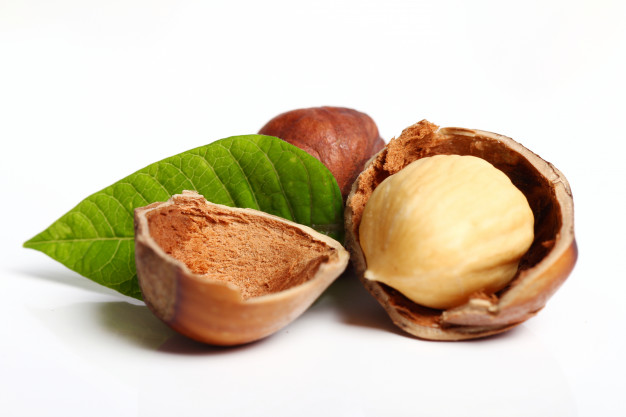Tuna is one of the most nutritious salt water fish belongs to Scombridae family. It has been traditionally used for various medicinal and culinary purposes.
Nutritional profile
- It is rich in protein and composed of various important amino acids
- It contains fat as well. It is considered as a healthy fat food as it contains higher amount of unsaturated fatty acids and especially rich in omega 3 fatty acid
- It is packed with numerous imperative micronutrients like Vitamin A, Vitamin C, Vitamin B1, B2, B3, B5, B6, B9, B12, calcium, phosphorus, potassium, manganese, selenium, magnesium, zinc, copper and iron
Biological activity
Antioxidant activity
- It is fully loaded with antioxidants. Its micronutrients components are accountable for exerting antioxidant activity
- It helps to protect the body from the harmful effects of free radical induced oxidative damages by neutralizing free radicals
- It is also associated with protecting the body from the detrimental effects of reactive oxygen species (ROS) and lipid peroxidation
- Moreover its consumption is very effective for lowering the prevalence of chronic diseases as it aids in reducing oxidative stress

Anti-carcinogenic activity

- Consumption of tuna significantly decreases the prevalence of carcinoma
- Its omega 3 fatty acid content, selenium content and oxidative stress reducing capacity are considered as the major factors responsible for exerting anti-carcinogenic activity
- It plays imperative role in inducing apoptosis as a result it helps in suppressing the growth of malignant cells in body
- It also helps to inhibit the growth of tumor cells by regulating cellular proliferation
- It is very effective for decreasing the prevalence of colorectal cancer and breast cancer
Anti-inflammatory activity
- Its vitamins and minerals components exhibit powerful anti-inflammatory activities that help in reducing inflammation
- It plays imperative role in decreasing the concentration of inflammatory markers in body, which ultimately reduces the risk of developing chronic inflammatory diseases
- It is also associated with preventing joint swelling as a result helps in improving joint health thus its consumption is thought to be very helpful for improving the symptoms of gout and arthritis
Health benefits
Role on cardiac health
- Tuna is considered as an important therapeutic substance for cardiac health as it contains numerous cardio-protective nutrients
- Its omega 3 fatty acid content plays vital role in decreasing the concentration of bad cholesterol or LDL in body, which helps to inhibit fat depositions within blood vessels as a result decreases the susceptibility of blockage and atherosclerosis
- It also helps to decrease the prevalence of coronary artery diseases, angina pectoris and myocardial infraction
- Its selenium content also plays vital role in promoting cardiac health
- Its protein content helps in the growth and development of cardiac muscles
- Its magnesium content helps in maintaining normal heart beat hence prevents arrhythmias
- Its potassium content acts as vasodilator and helps in preventing hypertension
- Consumption of tuna also lowers the risk of stroke and heart attack

Role on immunity
- Selenium, zinc, manganese and Vitamin C components of tuna are recognized as the main immune boosting components, which play imperative role in boosting up the overall immunity of the body
- Its protein component is also responsible for promoting the synthesis of immunoglobulins or antibodies that help the body to fight against diseases thus lowers the susceptibility of becoming ill
- It helps to stimulate the synthesis of WBC too, which ultimately helps in strengthening the defense mechanism of the body and also makes the body able to fight against infections
Role on renal health
- Its high potassium and low sodium content makes it an important therapeutic substance for renal health
- It plays significant role in managing the fluid balance in body, which is a big factor for proper renal functioning. As it helps to maintain fluid balance thus its consumption is thought to be very effective for reducing the risk of developing renal disorders
- It is advised that individual who suffer from chronic renal disease should consult with dietitian before adding tuna in their diet


Role on nervous system
- Its consumption is believed to be very useful for improving the health and functionality of nervous system as it contains various nutrients that nourish the brain
- Its omega 3 fatty acid content and protein content play significant role in the growth and development of brain
- Its B vitamins components especially Vitamin B6 help to improve brain activity
- Its antioxidant and anti-inflammatory activities are also responsible for protecting nerve cells from damages that ultimately help in lowering the risk of developing neurological disorders
- It helps in improving cognitive ability as well
- It is also associated with improving memory and learning skill
Role on muscle
- Proteins present in tuna helps in the growth and development of muscles
- It helps in improving muscle mass as well as muscle strength, which ultimately helps the muscle to perform well as a result improves endurance
- It helps to prevent muscular damages as well
Role on metabolism
- Consumption of tuna is very effective for boosting up the metabolism of the body
- It contains significant amount of B vitamins that act as cofactors and support several metabolic reactions of body
- It is directly linked with improving the energy level of body as B vitamins present in tuna help to speed up metabolic reactions
- Moreover it ensures that individual who consume tuna fish tend to be more energetic, and active

Therapeutic uses
It has been extensively used for various therapeutic purposes, which include –
- It is widely used for preventing the damages of cell membrane as its peptide content helps in improving the overall state of the cell membrane
- It is used for improving mood as well. Selenium and omega 3 fatty acid components of tuna play vital role in preventing anxiety, which not only helps in improving mood but also helps to refresh the mind
- Individual suffer from diabetes can include tuna in their diet because it helps in improving the symptoms of hyperglycemia. It has seen that omega- 3 fatty acid found in tuna helps in boosting up insulin responses by keeping it at bay
- Being a low calorie and protein rich food its consumption is believed to be very beneficial for weight reduction as well
- Its iron and B vitamin components (especially Vitamin B9 and B12) play imperative role in the formation and maturation of RBC, which ultimately help in lowering the prevalence of anemia
- It helps in improving blood circulation as well thus helps in supplying proper oxygen, nutrients and various important components throughout the body
- It also helps to improve the overall growth and development of the body as proteins present in tuna act as building blocks of body
- It helps in rapid wound healing
- It helps in promoting the health and functionality of connective tissues as well
- Omega-3 fatty acid present in tuna helps in delaying the progression of retinal disease too
- Its consumption is also very effective for maintaining a healthy skeletal system
- Elastin is an important protein found in tuna helps in re-synthesizing skin cells as well as tissues. It also helps in repairing skin damages and helps to make the skin smooth too

Risk factors
The main danger of consuming too much tuna is the risk of developing mercury poisoning thus it is always better to consume it as per recommendation.

Source:
Bell, J.D., Allain, V., Allison, E.H., Andréfouët, S., Andrew, N.L., Batty, M.J., Blanc, M., Dambacher, J.M., Hampton, J., Hanich, Q. and Harley, S., 2015. Diversifying the use of tuna to improve food security and public health in Pacific Island countries and territories. Marine Policy, 51, pp.584-591.
Erdaide, O., Eguiraun, H., Bwye, G., Lekube, X. and Martinez, I., DOCUMENTING THE HEALTH BENEFITS OF TUNA PRODUCTS.
Mahaliyana, A.S., Jinadasa, B.K.K.K., Liyanage, N.P.P., Jayasinghe, G.D.T.M. and Jayamanne, S.C., 2015. Nutritional composition of skipjack tuna (Katsuwonus pelamis) caught from the oceanic waters around Sri Lankae. American Journal of Food and Nutrition, 3(4), pp.106-111.
Maqbool, A., Strandvik, B. and Stallings, V.A., 2011. The skinny on tuna fat: health implications. Public health nutrition, 14(11), pp.2049-2054.
Rasmussen, R.S., Nettleton, J. and Morrissey, M.T., 2005. A review of mercury in seafood: special focus on tuna. Journal of Aquatic Food Product Technology, 14(4), pp.71-100.









